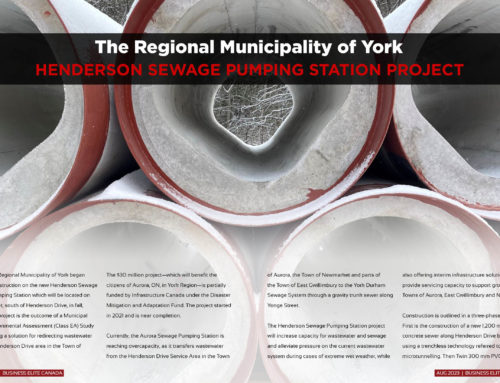Town Revs up for Huge Cannabis Operation
In early 2018, Antonio Bramante of MYM Nutraceuticals Inc. and Yann Lafleur from CannaCannabis were driving through the Eastern Townships in Québec. The companies were preparing to set up shop for a one-and-a-half-million square foot greenhouse, potentially one of the largest greenhouse cultivation projects in Canada, to produce and sell high-end medicinal cannabis supplements and topical products. The project required a community with ample land, but also the commercial and public services required to support the project. Driving around the country side, both men passed numerous lakes, rivers, and townships until they saw the sign that they’d found the right place. That sign said Welcome to Weedon.
The serendipity of the name was too great to pass by, so they stopped the car, and found a town that had everything needed to support this innovative undertaking.
“The name had an obvious synchronicity, but we also happened to have everything they needed for the project,” says Emrick Couture-Picard, Socio-economic Development Councillor. Weedon is ideally situated close to the border and to Sherbrooke, has had ample land, an eco-neighbourhood project underway and, most importantly, according to Couture-Picard, “the political will necessary to accept and support such a project.”
History
Even before the town was officially founded in 1841, First Nations had been occupying the territory for thousands of years. The Abenakis were already trading, fishing, hunting and living seasonally in the area.
In 1875, the railroad appeared in the town, projecting the community in an economic and commercial boom. During the 20th century, with the province’s road development, the road 112 appeared in the center of Weedon, bringing hundreds of new consumers in its commercial center. Considering its geographical location, being in the center of a rural area parceled by little towns, Weedon became an epicenter, developing a broad scale of public services we’d normally only find in a bigger town, like access to basic public services like education, health care, public security and an active cultural life.
Positive Partnership
Weedon was ready not only for the state-of-the-art greenhouse, but the multipurpose CannaCentre complex that will house a museum, auditorium, learning centre, restaurant, bookstore, hotel, and cannabis research and innovation centre. The project came at a perfect time; with an ageing population, Weedon was not immune to devitalisation—the antidote to which is modernity and innovative entrepreneurship, and nothing checks those boxes like the cannabis industry.
“This project represents an opportunity to be put on the map and be attractive again,” says Couture-Picard. The construction will necessitate $223 million in investment and will create 400 direct jobs. The economic spin-offs are estimated at $3.1 billion for Canada and $2.2 billion in Quebec. Needless to say, the project will have a major economic impact.”
Moreover, the project is the impetus for the creation of an industrial cluster, which aims to root the project in the community. The clusters aim to build itself around medicinal cannabis and industrial hemp. “This way, we’re making sure the benefits also create new jobs in new sectors and help us diversify our economic structure,” says Couture-Picard.
When asked what Weedon council members saw in the cannabis industry, Couture-Picard says the broad range of potential cannabis and industrial hemp products—both medicinal and alimentation—was a big draw.
“Medicinal cannabis could help a lot of people struggling with their health for example,” he says. “It’s also a sector continually changing, considering a lot of states are adapting their laws and legalising it. It’s a big market getting bigger everyday.”
Weedon’s main target sector is, for the moment, is Research and development, with the objective to develop new products, mainly in bio-composite. “We’re looking to have our own comparative advantage, and bio-composites looks like the best bet,” says Couture-Picard. Weedon sees it as one of the most plausible solution to create a structural and systemic ecological impact to our global economic structure. Hemp can be transformed into more than 2,500 products related to the alimentation sector, textiles, construction, cosmetics, medicinal, and event bio-composites which can be used to replace plastics.
“The objective, considering this, is to be able to put together a whole industrial and commercial cluster that will be able to produce, transform and research in Weedon,” says Couture-Picard.
Project Update
Driving through Weedon today, you will see the base structure of the extraction facility and seven finished greenhouses.
Weedon council is trying to put pressure on politicians in order to change the way Health Canada treat the licences—construction has been halted amidst licensing bottlenecks a few times. “There’s no standardisation or deadline,” says Couture-Picard. “The process is not transparent, and nobody seems to have any information. As a local government and a partner, we find this situation frustrating and abnormal. It’s like the federal government wasn’t really ready to legalize and hadn’t verified if the public function had the capacity to effectively and equitably process the licences demands.”
Weedon Quebec is writing its latest chapter as a force in integrating with the social and economic dynamics of the early 21st century. With its location, its economic vitality and its capacity for dialogue among local decision-makers, all signs are pointing to a bright future.






